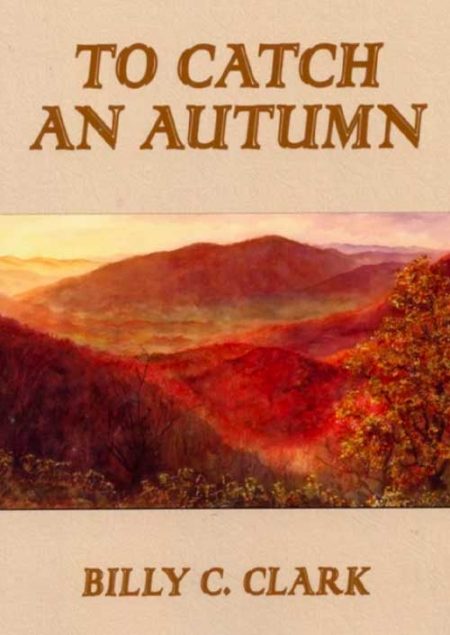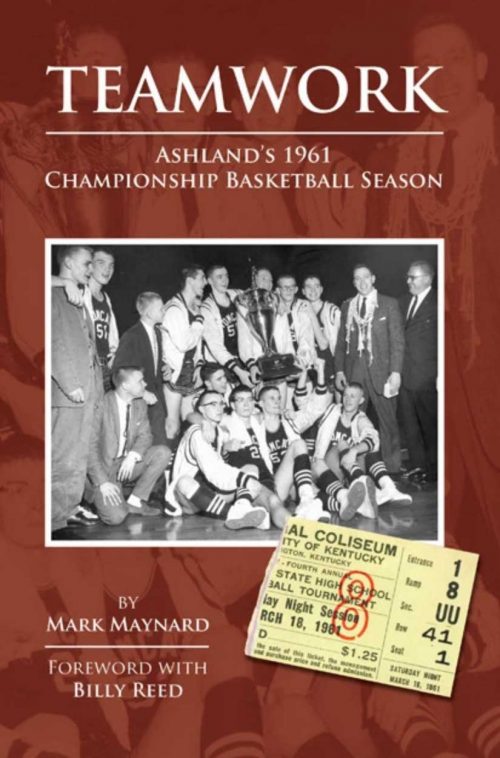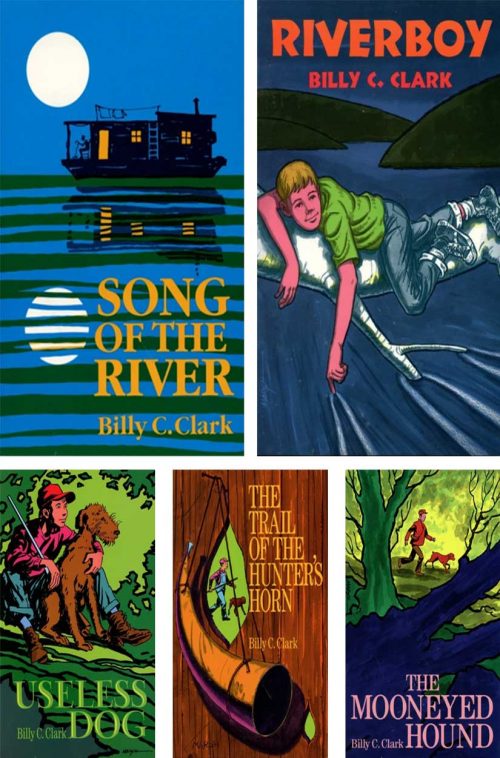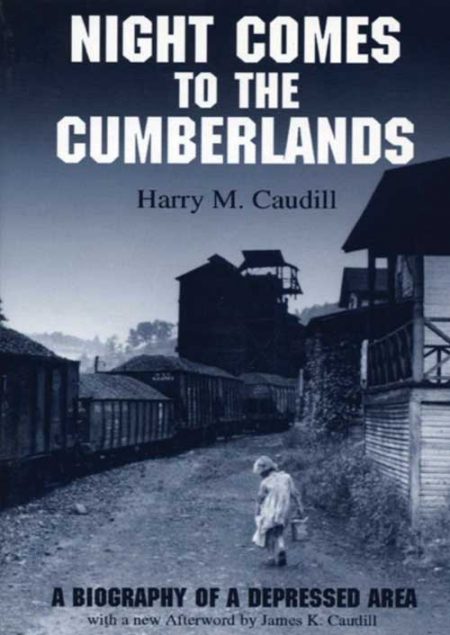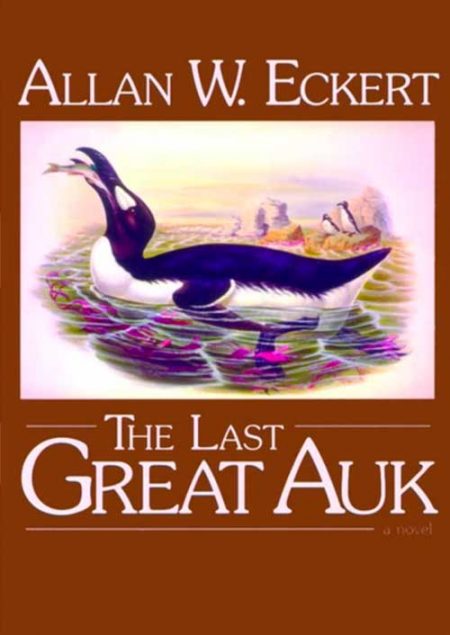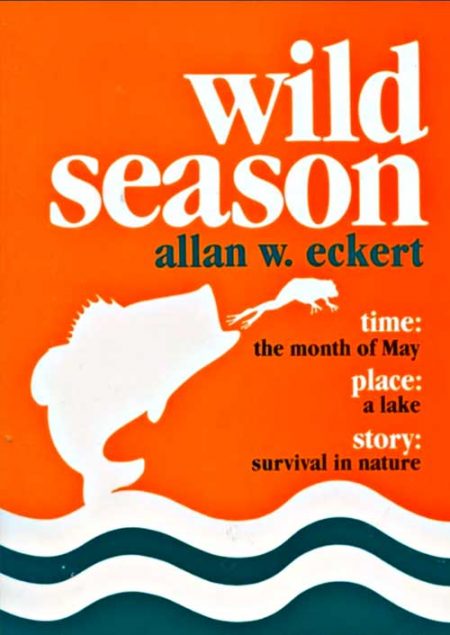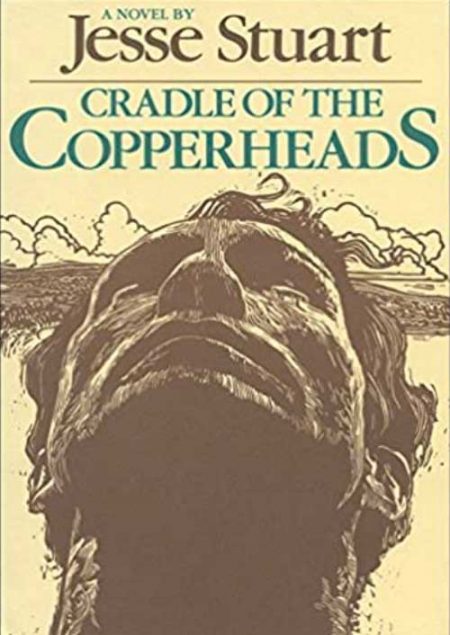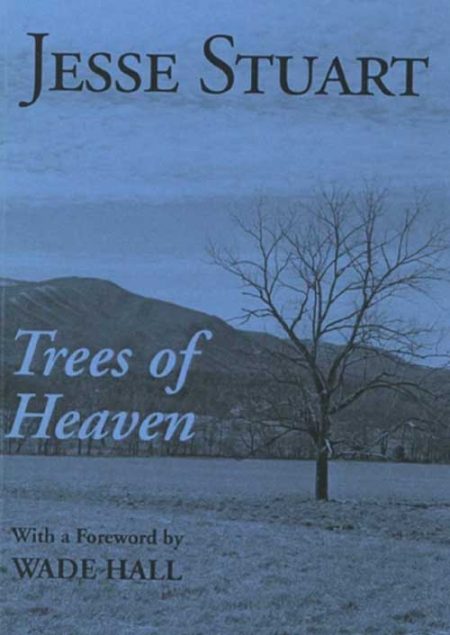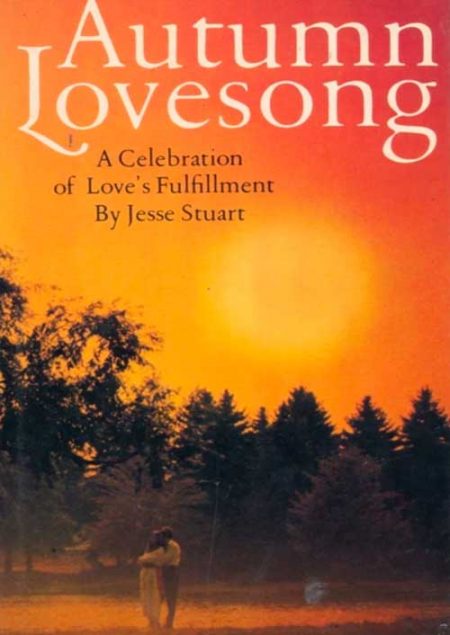-
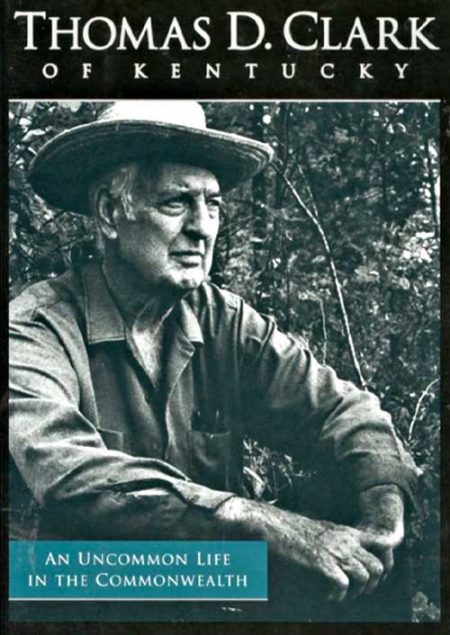 In 1990, the Kentucky General Assembly honored Thomas D. Clark by declaring him Kentucky’s Historian Laureate for life, at which time Governor Brereton Jones described him as “Kentucky’s greatest treasure.” Thomas D. Clark of Kentucky; An Uncommon Life in the Commonwealth is a celebration and exploration of the unparalleled life and career of a man who has both recorded the history and shaped the future of his adopted home state. Born on July 14th 1903, in Louisville, Mississippi, to a cotton farmer and a public school teacher, Clark was the oldest of seven children. Before enrolling in high school at age eighteen, he worked on a farm, in a sawmill, and as a cabin boy and deck hand on a dredge boat. After attending the University of Mississippi and earning graduate degrees at the University of Kentucky and Duke University, Clark joined the faculty of the University of Kentucky in 1931. There he chaired the history department from 1942 until 1965, influencing the lives of thousands of students.
In 1990, the Kentucky General Assembly honored Thomas D. Clark by declaring him Kentucky’s Historian Laureate for life, at which time Governor Brereton Jones described him as “Kentucky’s greatest treasure.” Thomas D. Clark of Kentucky; An Uncommon Life in the Commonwealth is a celebration and exploration of the unparalleled life and career of a man who has both recorded the history and shaped the future of his adopted home state. Born on July 14th 1903, in Louisville, Mississippi, to a cotton farmer and a public school teacher, Clark was the oldest of seven children. Before enrolling in high school at age eighteen, he worked on a farm, in a sawmill, and as a cabin boy and deck hand on a dredge boat. After attending the University of Mississippi and earning graduate degrees at the University of Kentucky and Duke University, Clark joined the faculty of the University of Kentucky in 1931. There he chaired the history department from 1942 until 1965, influencing the lives of thousands of students. -
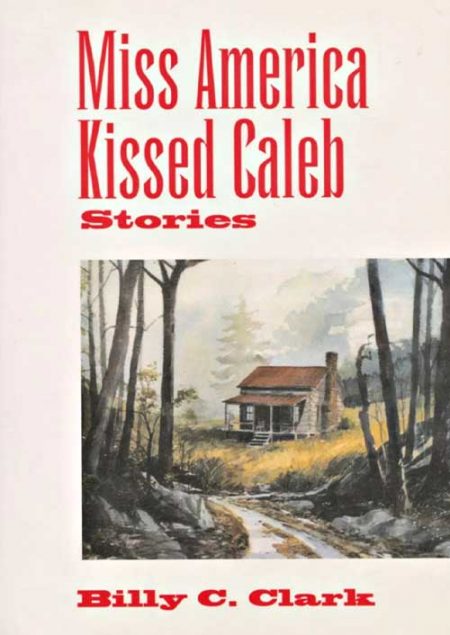 The mountain is a lonely place. Welcome to Sourwood, a small Kentucky town inhabited by men and women unique and yet eerily familiar. Among its joyful and tragic citizens we meet the crafty, spirited Caleb and his curious younger brother; Pearl, a suspected witch, and her sheltered daughter, Thanie; superstitious Eli; and the doomed orphan Girty. In Sourwood, the mountain is both a keeper of secrets and an imposing, isolating presence, shaping the lives of all who live in its shadow. Strong in both the voice and sensibilities of Appalachia, the stories in Miss America Kissed Caleb are at turns heartbreaking and hilarious. In the title story, young Caleb turns over his hard-earned dime to the war effort when he receives a coaxing kiss from Miss America, who sweeps into Sourwood by train, "pretty as a night moth." Caleb and his brother share in the thrills and uncertainties of growing up, making an accidental visit to a brothel in "Fourth of July" and taming a "high society" pooch in "The Jimson Dog." These stories invoke a place and a time that have long passed―a way of living nearly extinct―yet the beauty of the language and the truth revealed in the characters' everyday lives continue to resonate with modern readers. By Billy C. Clark
The mountain is a lonely place. Welcome to Sourwood, a small Kentucky town inhabited by men and women unique and yet eerily familiar. Among its joyful and tragic citizens we meet the crafty, spirited Caleb and his curious younger brother; Pearl, a suspected witch, and her sheltered daughter, Thanie; superstitious Eli; and the doomed orphan Girty. In Sourwood, the mountain is both a keeper of secrets and an imposing, isolating presence, shaping the lives of all who live in its shadow. Strong in both the voice and sensibilities of Appalachia, the stories in Miss America Kissed Caleb are at turns heartbreaking and hilarious. In the title story, young Caleb turns over his hard-earned dime to the war effort when he receives a coaxing kiss from Miss America, who sweeps into Sourwood by train, "pretty as a night moth." Caleb and his brother share in the thrills and uncertainties of growing up, making an accidental visit to a brothel in "Fourth of July" and taming a "high society" pooch in "The Jimson Dog." These stories invoke a place and a time that have long passed―a way of living nearly extinct―yet the beauty of the language and the truth revealed in the characters' everyday lives continue to resonate with modern readers. By Billy C. Clark -
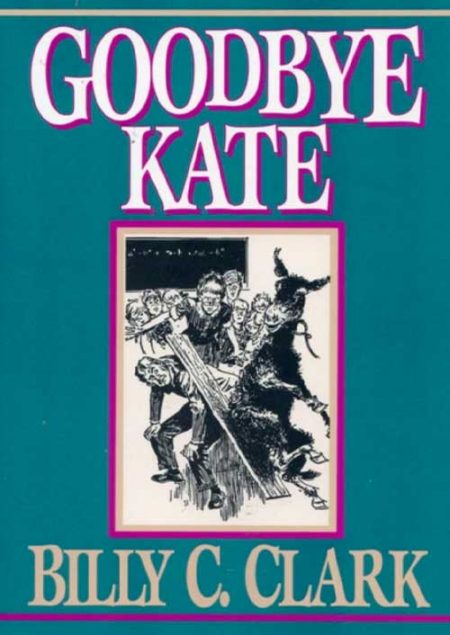 Goodbye Kate, Billy C. Clark’s sixth novel, is based in part on a mule he once owned. In the novel, Kate is found far back in the hills by a lonely country boy named Isaac Warfield. He lives close enough to Tatesburg, the nearest town, to walk to school there, but it’s a small town, and his home is isolated. Isaac has graduated from the little country school he has attended and the other members of his class will be moving on to another school, or to no school at all. He won’t have much contact with his friends anymore, and the nearest neighbor, a money-hungry man named Simm Johns, has no children and is “mean as a striped snake.” Isaac finds Kate when he goes back into the hills to pick some blackberries for his mother. The little mule is apparently as lonely as Isaac is, and she adopts him and follows him home – as far as the pine grove above the house, that is. By Billy C. Clark
Goodbye Kate, Billy C. Clark’s sixth novel, is based in part on a mule he once owned. In the novel, Kate is found far back in the hills by a lonely country boy named Isaac Warfield. He lives close enough to Tatesburg, the nearest town, to walk to school there, but it’s a small town, and his home is isolated. Isaac has graduated from the little country school he has attended and the other members of his class will be moving on to another school, or to no school at all. He won’t have much contact with his friends anymore, and the nearest neighbor, a money-hungry man named Simm Johns, has no children and is “mean as a striped snake.” Isaac finds Kate when he goes back into the hills to pick some blackberries for his mother. The little mule is apparently as lonely as Isaac is, and she adopts him and follows him home – as far as the pine grove above the house, that is. By Billy C. Clark -
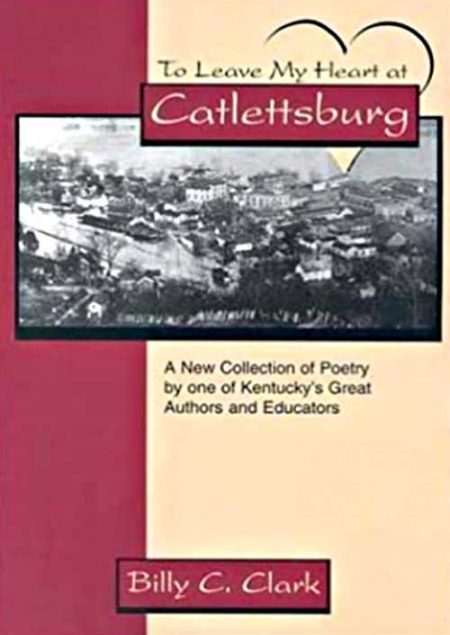 This sense of appreciation for earth and its creatures runs through all of the poems in To Leave My Heart at Catlettsburg and results in a poignant literacy tribute, a gift to a town and its people. Beyond that, this book reminds all readers to observe the world more carefully and to listen more sensitively, to be more alive to the beauty and sturggles around us, to be more grateful for passing through. By Billy C. Clark
This sense of appreciation for earth and its creatures runs through all of the poems in To Leave My Heart at Catlettsburg and results in a poignant literacy tribute, a gift to a town and its people. Beyond that, this book reminds all readers to observe the world more carefully and to listen more sensitively, to be more alive to the beauty and sturggles around us, to be more grateful for passing through. By Billy C. Clark -
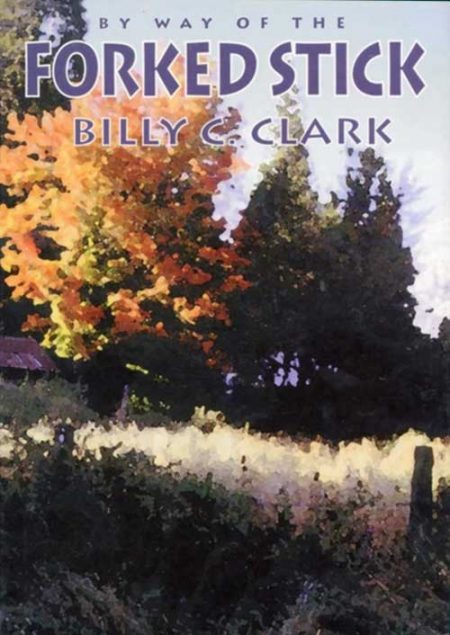 In the little Appalachian town of Sourwood, life at the end of the Great Depression may have been tough, but it was rich beyond compare. Building on a distinguished body of work celebrating and preserving mountain culture, renowned writer Billy C. Clark once again revisits his boyhood during a bygone era. By Way of the Forked Stick offers four fictional stories drawn from the author's childhood experiences of the 1930s—tales that vividly convey the down-home spirit of a lost way of life. By Billy C. Clark
In the little Appalachian town of Sourwood, life at the end of the Great Depression may have been tough, but it was rich beyond compare. Building on a distinguished body of work celebrating and preserving mountain culture, renowned writer Billy C. Clark once again revisits his boyhood during a bygone era. By Way of the Forked Stick offers four fictional stories drawn from the author's childhood experiences of the 1930s—tales that vividly convey the down-home spirit of a lost way of life. By Billy C. Clark -
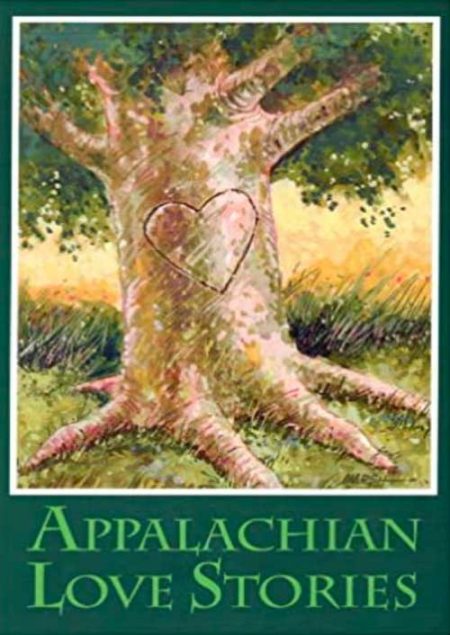 Authors represented in Appalachian Love Stories include:
Authors represented in Appalachian Love Stories include:- Jesse Stuart
- Ancella R. Bickley
- James M. Gifford
- Jimmy Lowe
- James B. Goode
- Edwina Pendarvis
- Laura Treacy Bentley
- Bruce Radford Richey
- Ina Everman
- Danny Fulks
- Loyal Jones
- Billy C. Clark
- Linda Scott DeRosier
- Christina St. Clair
- Alexandra Combs Hudson
- Kate Larken
- Barbara Smith
- Carol Van Meter
-
 Jesse Stuart was a paradox. For a period of his life, Jesse slept with a loaded gun under his pillow, yet he also carried a typewriter with him wherever he went. He courted woman with mud on his boots and pistols on his hips, but he had wildflowers in his hands and envelops completely covered with chicken-scratched poems in his pockets. He was petty yet often kind, mean-spirited but truly helpful to beginning writers, clannish yet hospitable to visitors HARDBACK By James M. Gifford
Jesse Stuart was a paradox. For a period of his life, Jesse slept with a loaded gun under his pillow, yet he also carried a typewriter with him wherever he went. He courted woman with mud on his boots and pistols on his hips, but he had wildflowers in his hands and envelops completely covered with chicken-scratched poems in his pockets. He was petty yet often kind, mean-spirited but truly helpful to beginning writers, clannish yet hospitable to visitors HARDBACK By James M. Gifford -
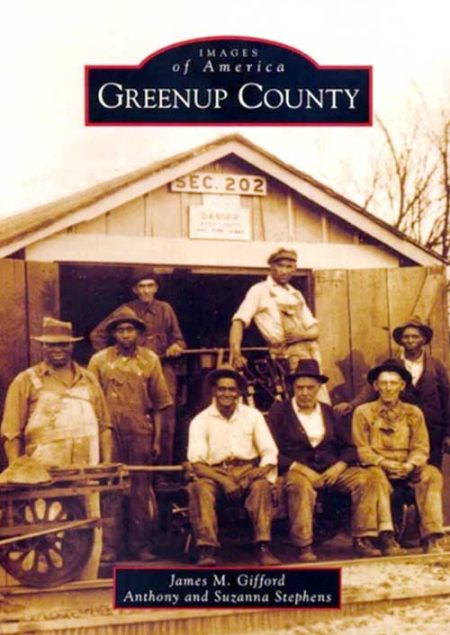 Greenup County, bordering the Ohio River in northeastern Kentucky, is rich in history and culture. Settlers first arrived in the mid-1700s and carved farms from hardwood forests. Lucy Virgin Downs, the first white child born west of the Alleghenies, lived in Greenup County, as did Jesse Boone, brother of Kentucky icon Daniel Boone. The 20th century brought industrialization and economic diversification to the historically agricultural area. Ashland Oil, a Fortune 500 company, maintained corporate headquarters in Greenup County. Two steel mills, a large rail yard, an excellent hospital, and a number of surface mines also provided employment to many people who continued to work their family farms, too. This economic progress was mirrored in every aspect of country life as education, health care, and recreation all improved dramatically. Today Greenup County’s history is appreciated by both longtime residence and cultural tourists. James M. Gifford serves as chief executive and senior editor of the Jesse Stuart Foundation, a regional publishing house. Dr. Gifford’s coauthors, Anthony and Suzanna Stephens, are eastern Kentuckians. The authors gathered photographs from dozens of personal and library collections.SOFTBACK By James M. Gifford, Anthony and Suzanna Stephens
Greenup County, bordering the Ohio River in northeastern Kentucky, is rich in history and culture. Settlers first arrived in the mid-1700s and carved farms from hardwood forests. Lucy Virgin Downs, the first white child born west of the Alleghenies, lived in Greenup County, as did Jesse Boone, brother of Kentucky icon Daniel Boone. The 20th century brought industrialization and economic diversification to the historically agricultural area. Ashland Oil, a Fortune 500 company, maintained corporate headquarters in Greenup County. Two steel mills, a large rail yard, an excellent hospital, and a number of surface mines also provided employment to many people who continued to work their family farms, too. This economic progress was mirrored in every aspect of country life as education, health care, and recreation all improved dramatically. Today Greenup County’s history is appreciated by both longtime residence and cultural tourists. James M. Gifford serves as chief executive and senior editor of the Jesse Stuart Foundation, a regional publishing house. Dr. Gifford’s coauthors, Anthony and Suzanna Stephens, are eastern Kentuckians. The authors gathered photographs from dozens of personal and library collections.SOFTBACK By James M. Gifford, Anthony and Suzanna Stephens -
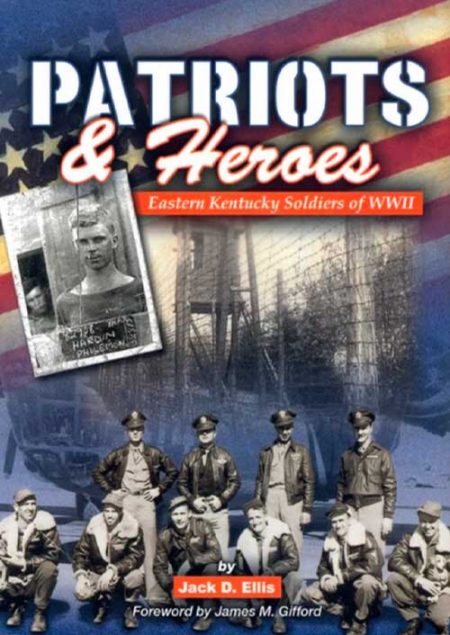 Patriots & Heroes: Eastern Kentucky Soldiers of WW II profiles the physical pain, and also the psychological and emotional stress suffered by a dozen of America's Citizen Soldiers in WW II. Their stories are representative of the courage, suffering, sacrifice and separation faced by the American GIs of that war. Included among these twelve are stories of POWs, KIAs, MIAs and many that returned home safely to become valuable, productive members of their community. The author uses interviews, letters, documents, and personal experiences to poignantly present their stories. HARDBACK By Jack D. Ellis
Patriots & Heroes: Eastern Kentucky Soldiers of WW II profiles the physical pain, and also the psychological and emotional stress suffered by a dozen of America's Citizen Soldiers in WW II. Their stories are representative of the courage, suffering, sacrifice and separation faced by the American GIs of that war. Included among these twelve are stories of POWs, KIAs, MIAs and many that returned home safely to become valuable, productive members of their community. The author uses interviews, letters, documents, and personal experiences to poignantly present their stories. HARDBACK By Jack D. Ellis -
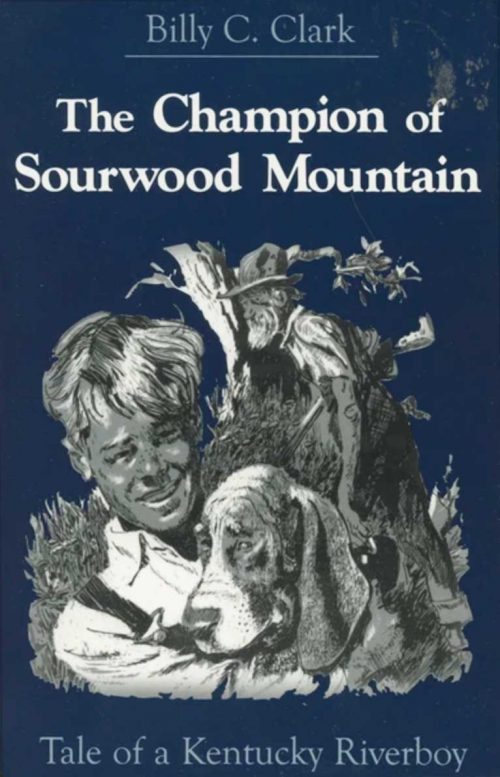 The people, the lore, even the sounds of eastern Kentucky come vividly to life in this affectionate story of a boy and his search dog. In the shadow of Sourwood Mountain, fourteen-year-old Aram Tate is absorbed in the sometimes painful process of growing up. His all-consuming passion is to own a hound dog of his very own, and his efforts to achieve this dream involve him in a series of amusing adventures which broaden his boy's-eye view of the world. Through his friendship with ne'er-do-well Eb ringtom, Aram Learns the ways of men as they never were described in books. Among the other colorful characters who contribute to the boy's education are Lighting and Napoleon, two imcomparably wily gamecocks; Thusla, Eb's great hound whose exploits can only be described as apocryphal; and Rile Feder and his dog, the bluetick Tweedle, who fears neither coon nor fox. SOFTBACK By Billy C. Clark
The people, the lore, even the sounds of eastern Kentucky come vividly to life in this affectionate story of a boy and his search dog. In the shadow of Sourwood Mountain, fourteen-year-old Aram Tate is absorbed in the sometimes painful process of growing up. His all-consuming passion is to own a hound dog of his very own, and his efforts to achieve this dream involve him in a series of amusing adventures which broaden his boy's-eye view of the world. Through his friendship with ne'er-do-well Eb ringtom, Aram Learns the ways of men as they never were described in books. Among the other colorful characters who contribute to the boy's education are Lighting and Napoleon, two imcomparably wily gamecocks; Thusla, Eb's great hound whose exploits can only be described as apocryphal; and Rile Feder and his dog, the bluetick Tweedle, who fears neither coon nor fox. SOFTBACK By Billy C. Clark -
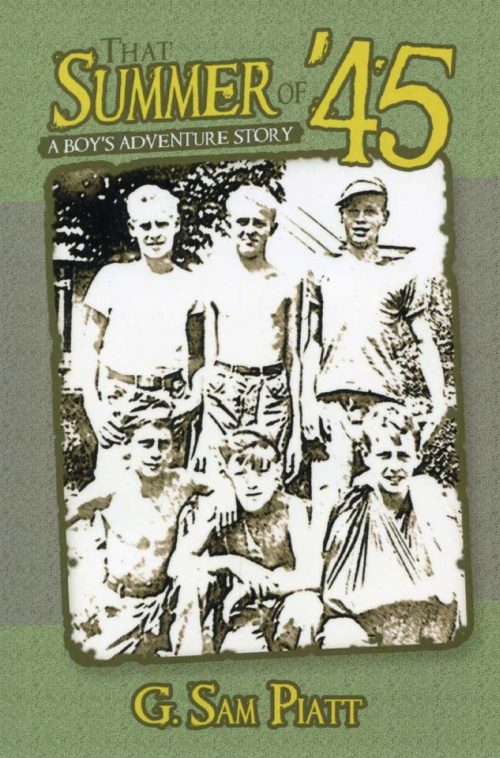 He had reached an age well past the three-score and ten that the Scriptures referred to as the allotted span of man’s life on earth. So it was understandable that he spent more time these days looking back than he did in looking to the future. He wondered if others were affected by nostalgia as strongly as he was of late. For the third time in a week, he had come awake in the middle of the night, staring at the ceiling, tears flowing down the sides of his face and onto the sheet. Oh how he longed to see again the people and the places in that little Ohio River village where he spent his boyhood days. SOFTBACK By Sam Piatt
He had reached an age well past the three-score and ten that the Scriptures referred to as the allotted span of man’s life on earth. So it was understandable that he spent more time these days looking back than he did in looking to the future. He wondered if others were affected by nostalgia as strongly as he was of late. For the third time in a week, he had come awake in the middle of the night, staring at the ceiling, tears flowing down the sides of his face and onto the sheet. Oh how he longed to see again the people and the places in that little Ohio River village where he spent his boyhood days. SOFTBACK By Sam Piatt -
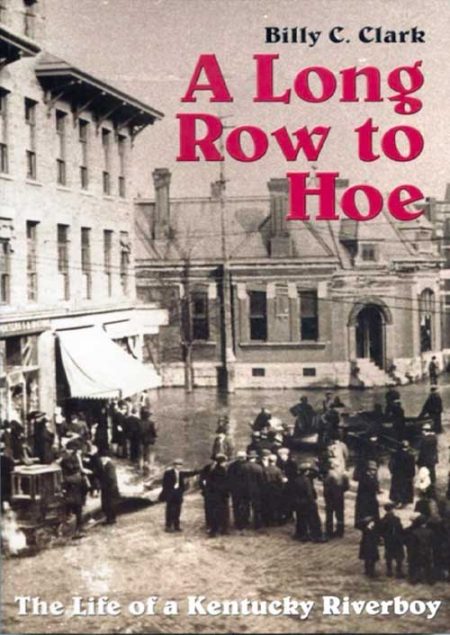 Boston University, the site of the world’s finest repository of 20th Century literature, praises Billy C. Clark as “one of the South’s most distinguished writers.” In this fascinating and highly readable book, Clark, founder and editor of Virginia Writing, writes of his own astonishingly primitive childhood in an Appalachian river town, Catlettsburg, Kentucky, at the junction of the Big Sandy and the Ohio Rivers. Billy C. Clark was a member of a sprawling, ragged family. His father was an intelligent, fiddle-playing shoemaker with little formal education. His mother often took in washing to help provide food for the family. Billy grew up in a derelict house, “The Leaning Tower,” on the banks of the Ohio. Always hungry, often dirty, and without sufficient clothing, he led an adventurous life on the two rivers, swimming, fishing, and salvaging flotsam from the frequent floods. He set trout lines for fish and trap lines for mink and muskrats, and he walked fourteen miles before school to clear his traps. He learned laughter from his magnificent mother and wisdom from his father, who taught him that “poor folks have a long row to hoe….” Billy was the only one of his family to seek an education, and through his traps, his river salvage, and odd jobs, he earned money to put himself through school. The book ends with a powerful account of his parents’ pride at his graduation. Time Magazine said that this book is “as authentically American as Huckleberry Finn.” It is a touching account of a boy and two rivers. It is a must for public and school libraries, or anyone interested in Appalachian history or literature. By Billy C. Clark
Boston University, the site of the world’s finest repository of 20th Century literature, praises Billy C. Clark as “one of the South’s most distinguished writers.” In this fascinating and highly readable book, Clark, founder and editor of Virginia Writing, writes of his own astonishingly primitive childhood in an Appalachian river town, Catlettsburg, Kentucky, at the junction of the Big Sandy and the Ohio Rivers. Billy C. Clark was a member of a sprawling, ragged family. His father was an intelligent, fiddle-playing shoemaker with little formal education. His mother often took in washing to help provide food for the family. Billy grew up in a derelict house, “The Leaning Tower,” on the banks of the Ohio. Always hungry, often dirty, and without sufficient clothing, he led an adventurous life on the two rivers, swimming, fishing, and salvaging flotsam from the frequent floods. He set trout lines for fish and trap lines for mink and muskrats, and he walked fourteen miles before school to clear his traps. He learned laughter from his magnificent mother and wisdom from his father, who taught him that “poor folks have a long row to hoe….” Billy was the only one of his family to seek an education, and through his traps, his river salvage, and odd jobs, he earned money to put himself through school. The book ends with a powerful account of his parents’ pride at his graduation. Time Magazine said that this book is “as authentically American as Huckleberry Finn.” It is a touching account of a boy and two rivers. It is a must for public and school libraries, or anyone interested in Appalachian history or literature. By Billy C. Clark -
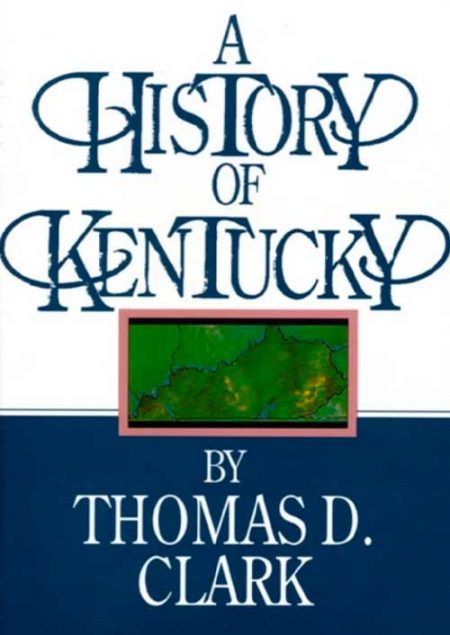 Kentucky’s history is an important part of American development because the state lay directly in the path of the great westward movement. It was in Kentucky that the early adjustments to the rigors of frontier life were made. Along the Kentucky River, Daniel Boone and a small band of settlers repulsed British and Indian thrusts to guard the back door of the struggling young nation during the Revolution. Under George Rogers Clark, the Kentuckians even carried the fight to British and Indian concentrations along the Ohio. HARDBACK By Thomas D. Clark
Kentucky’s history is an important part of American development because the state lay directly in the path of the great westward movement. It was in Kentucky that the early adjustments to the rigors of frontier life were made. Along the Kentucky River, Daniel Boone and a small band of settlers repulsed British and Indian thrusts to guard the back door of the struggling young nation during the Revolution. Under George Rogers Clark, the Kentuckians even carried the fight to British and Indian concentrations along the Ohio. HARDBACK By Thomas D. Clark -
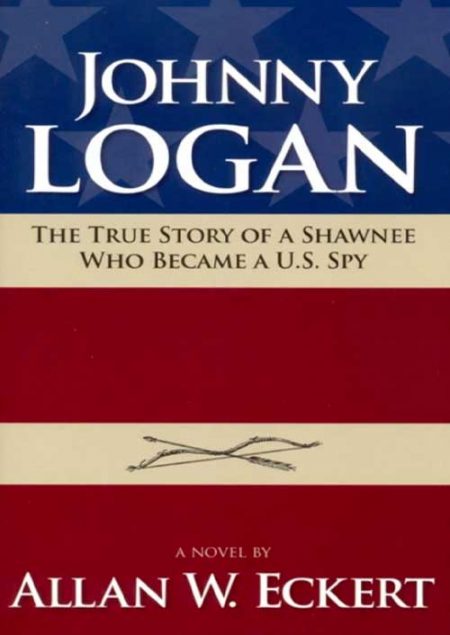 Blue Jacket’s popularity inspired Allan W. Eckert to write Johnny Logan, the true story of a Shawnee who became a U.S. spy, and it was first published in 1983. Logan was one of the greatest Indian friends the white man ever had on the American frontier; and he was the only Native American buried with full United States military honors. By Allan Eckert
Blue Jacket’s popularity inspired Allan W. Eckert to write Johnny Logan, the true story of a Shawnee who became a U.S. spy, and it was first published in 1983. Logan was one of the greatest Indian friends the white man ever had on the American frontier; and he was the only Native American buried with full United States military honors. By Allan Eckert -
Out of stock
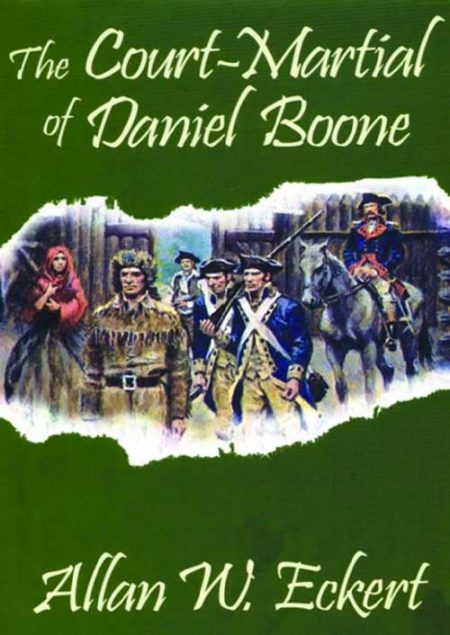 This young adult historical novel is based on an exciting and little known incident in the life of the famed Kentucky frontiersman Daniel Boone when, after being captured by Shawnee Indians and subsequently adopted into their tribe, he then escapes and returns to Boonesboro, only to find himself charged with treason and court-martialed. In a brilliant display of ability, Boone defends himself at the trial and gradually the truth about what really happened emerges. A fascinating glimpse of Kentucky's pioneer period as well as a penetrating look at frontier courtroom justice. By Allan Eckert
This young adult historical novel is based on an exciting and little known incident in the life of the famed Kentucky frontiersman Daniel Boone when, after being captured by Shawnee Indians and subsequently adopted into their tribe, he then escapes and returns to Boonesboro, only to find himself charged with treason and court-martialed. In a brilliant display of ability, Boone defends himself at the trial and gradually the truth about what really happened emerges. A fascinating glimpse of Kentucky's pioneer period as well as a penetrating look at frontier courtroom justice. By Allan Eckert -
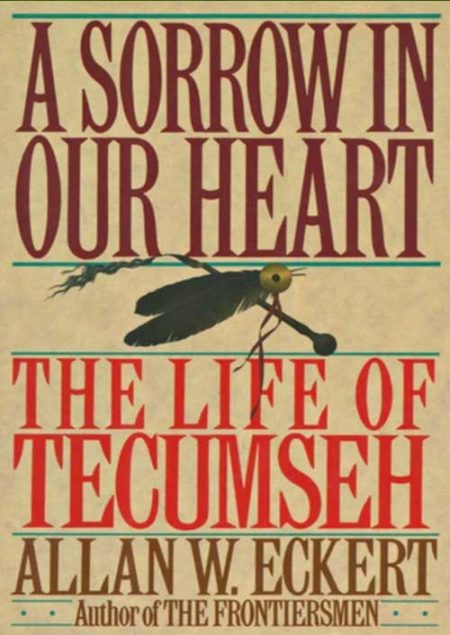 Though there are many biographies of the great Shawnee chief Tecumseh (1768-1813), this effort by historical novelist Allan W. Eckert may spark new interest — and controversy — with its "hidden dialogue" technique. After more than 25 years of research, the author felt free to recreate Tecumseh's conversations and thoughts in what proves to be an entertaining blend of fact and fiction. The orator and organizer's life was shaped by his tribe's tragic confrontation with westward-moving whites, who encroached on Native American lands along the Ohio River valley. His long struggle against this dispossession led Tecumseh to create a historic confederacy of tribes, but this crowning achievement was destroyed by his own brother at Tippecanoe in 1811. SOFTCOVER By Allan Eckert
Though there are many biographies of the great Shawnee chief Tecumseh (1768-1813), this effort by historical novelist Allan W. Eckert may spark new interest — and controversy — with its "hidden dialogue" technique. After more than 25 years of research, the author felt free to recreate Tecumseh's conversations and thoughts in what proves to be an entertaining blend of fact and fiction. The orator and organizer's life was shaped by his tribe's tragic confrontation with westward-moving whites, who encroached on Native American lands along the Ohio River valley. His long struggle against this dispossession led Tecumseh to create a historic confederacy of tribes, but this crowning achievement was destroyed by his own brother at Tippecanoe in 1811. SOFTCOVER By Allan Eckert -
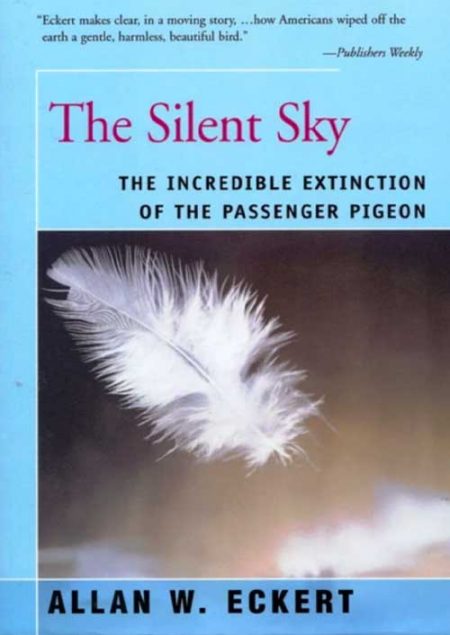 This nature novel, by following the hatching and lifetime experiences of the last know wild passenger pigeon, chronicles the life, natural history, and ultimate extinction of this species which was once the most abundant bird species in North America. The last wild bird was killed in 1900; the last captive bird died in 1914. By Allan Eckert
This nature novel, by following the hatching and lifetime experiences of the last know wild passenger pigeon, chronicles the life, natural history, and ultimate extinction of this species which was once the most abundant bird species in North America. The last wild bird was killed in 1900; the last captive bird died in 1914. By Allan Eckert -
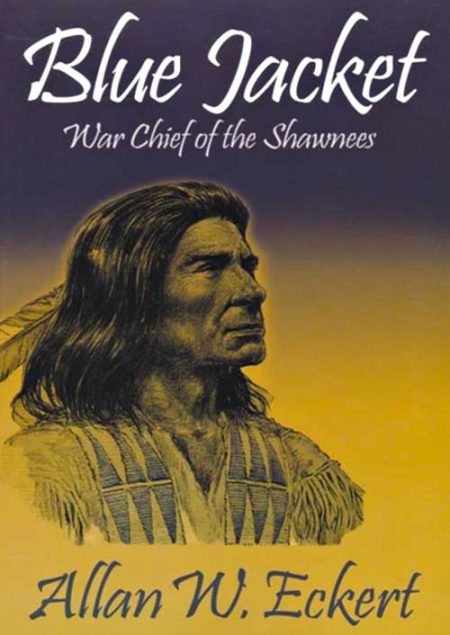 In the year 1771, a white boy named Marmaduke Van Swearingen was captured by the Shawnee Indians in what is now West Virginia, but was then the edge of the American frontier. Impressed with his bravery, he was not killed but instead was taken to Ohio where he was adopted into the tribe and given the name Blue Jacket, from the blue shirt he was wearing at the time of his capture. Eckert has taken all of the known facts of Blue Jacket's life and has woven them into a narrative of compelling interest, with a very different perspective on the way America was settled. The reader will learn what life was really like on the dangerous frontier wilderness that was West Virginia, Kentucky and Ohio before the Revolutionary War. By Allan Eckert
In the year 1771, a white boy named Marmaduke Van Swearingen was captured by the Shawnee Indians in what is now West Virginia, but was then the edge of the American frontier. Impressed with his bravery, he was not killed but instead was taken to Ohio where he was adopted into the tribe and given the name Blue Jacket, from the blue shirt he was wearing at the time of his capture. Eckert has taken all of the known facts of Blue Jacket's life and has woven them into a narrative of compelling interest, with a very different perspective on the way America was settled. The reader will learn what life was really like on the dangerous frontier wilderness that was West Virginia, Kentucky and Ohio before the Revolutionary War. By Allan Eckert -
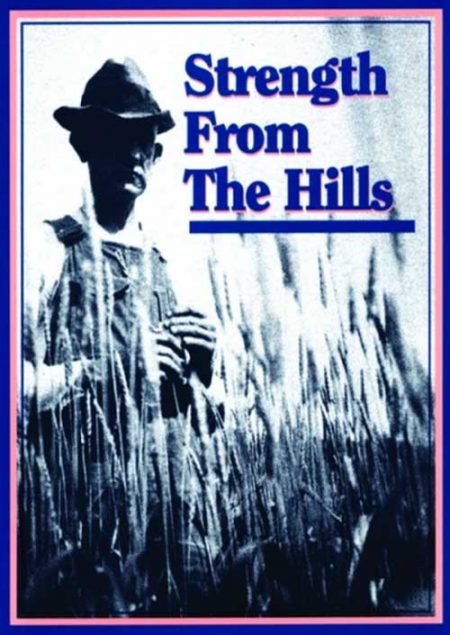 A biography of Jesse's father, Mitchell Stuart - a rural man who could not read or write. But Mick Stuart had learned the important things in life from the hills around him. He began his work before daylight, and stopped only when his family, his farm, and his animals were cared for. Jesse Stuart tells how his father taught him the unalterable values of right and wrong, love of family, and love of education. By Jesse Stuart
A biography of Jesse's father, Mitchell Stuart - a rural man who could not read or write. But Mick Stuart had learned the important things in life from the hills around him. He began his work before daylight, and stopped only when his family, his farm, and his animals were cared for. Jesse Stuart tells how his father taught him the unalterable values of right and wrong, love of family, and love of education. By Jesse Stuart -
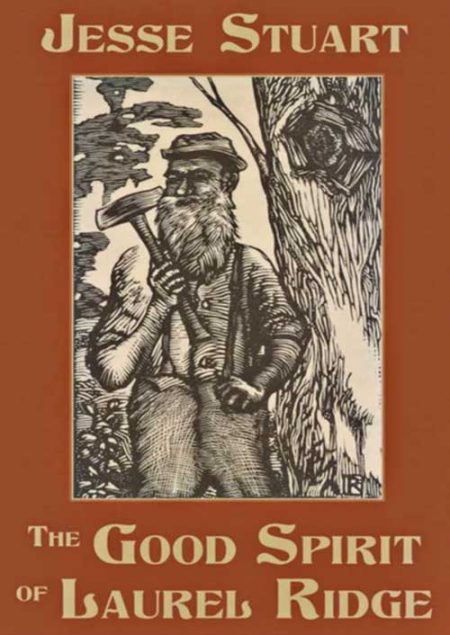 In The Good Spirit of Laurel Ridge, Jesse Stuart provides a tale of the Kentucky hill country which constantly excites, amuses, and amazes. The central character of this book is Theopolis Akers, "Old Opp" to his friends, the hermit of Laurel Ridge who is recognized as one of Stuart's most colorful character creations. Hermit, squatter, steadfast believer in the world of the spirits (sperets, he calls them), "Old Opp" lives a simple life atop deserted Laurel Ridge. He spends his days tilling his small patch of corn, gathering roots and nuts, or fishing with his bow and arrow. By night he sits on his porch, chews calmus weed, and listens to the wind blowing through the horse-hair harp strung up on the cabin wall. If he wants company, there is always his hound dog to talk to or various spirits to commune with including his dead wife, Beadie. By Jesse Stuart
In The Good Spirit of Laurel Ridge, Jesse Stuart provides a tale of the Kentucky hill country which constantly excites, amuses, and amazes. The central character of this book is Theopolis Akers, "Old Opp" to his friends, the hermit of Laurel Ridge who is recognized as one of Stuart's most colorful character creations. Hermit, squatter, steadfast believer in the world of the spirits (sperets, he calls them), "Old Opp" lives a simple life atop deserted Laurel Ridge. He spends his days tilling his small patch of corn, gathering roots and nuts, or fishing with his bow and arrow. By night he sits on his porch, chews calmus weed, and listens to the wind blowing through the horse-hair harp strung up on the cabin wall. If he wants company, there is always his hound dog to talk to or various spirits to commune with including his dead wife, Beadie. By Jesse Stuart -
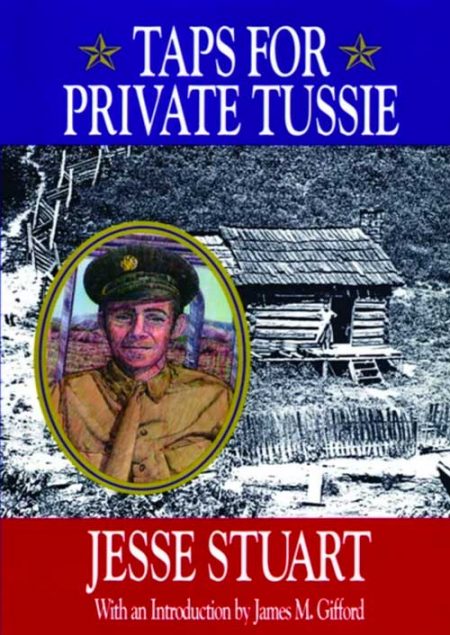 Taps for Private Tussie won the Thomas Jefferson Southern Award in 1943, and was a Book-of-the-Month Club selection that year, also. This tale about the Tussie family is a brimming mountain spring of hilarious fun and folklife. Yet never was a book read more eagerly to see what in the world will happen next. This tale is not just a story of poor white Southern mountaineers on relief. There is something universal about it. It reveals an attitude towards human life and its problems, found in people, places, and times that have no connection with Southern mountaineers. By Jesse Stuart
Taps for Private Tussie won the Thomas Jefferson Southern Award in 1943, and was a Book-of-the-Month Club selection that year, also. This tale about the Tussie family is a brimming mountain spring of hilarious fun and folklife. Yet never was a book read more eagerly to see what in the world will happen next. This tale is not just a story of poor white Southern mountaineers on relief. There is something universal about it. It reveals an attitude towards human life and its problems, found in people, places, and times that have no connection with Southern mountaineers. By Jesse Stuart -
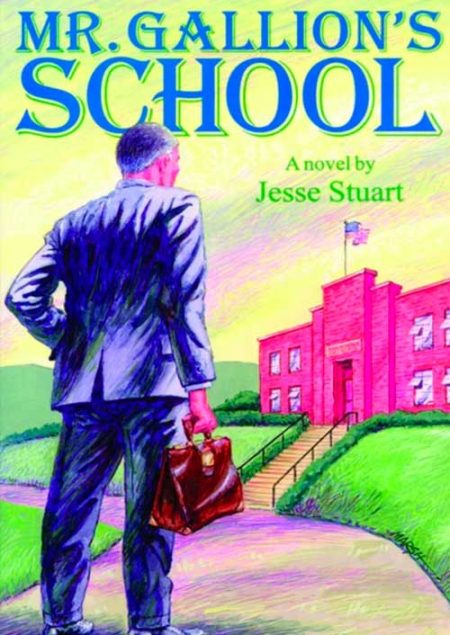 Jesse Stuart's strong views on teaching, delinquency, and parental responibilities, as well as his sharp assessment of boards of education, are more than a novelist's imagination. Mr. Gallion's School is based on Jesse Stuart's years of personal experience as a principal and teacher. As one of America's most popular writers, Stuart makes teaching and high school administration come alive in a moving and impassioned novel. Mr. Gallion's School is an enjoyable read that's great for high school students and out-of-school adults. A powerful reminder of the sacrifices that earlier generations made in order to get an education, it's a book with a great character education message in every chapter. By Jesse Stuart
Jesse Stuart's strong views on teaching, delinquency, and parental responibilities, as well as his sharp assessment of boards of education, are more than a novelist's imagination. Mr. Gallion's School is based on Jesse Stuart's years of personal experience as a principal and teacher. As one of America's most popular writers, Stuart makes teaching and high school administration come alive in a moving and impassioned novel. Mr. Gallion's School is an enjoyable read that's great for high school students and out-of-school adults. A powerful reminder of the sacrifices that earlier generations made in order to get an education, it's a book with a great character education message in every chapter. By Jesse Stuart -
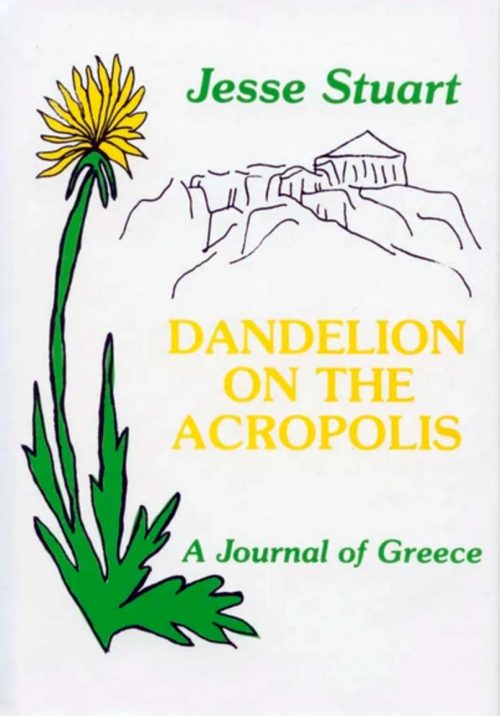 Jesse Stuart brings Greece, both ancient and modern, to life with his well loved sense of humor, color, and poetic descriptions. Dandelion on the Acropolis is a unique account of Jesse and his wife Naomi's travels throughout Greece in 1962. Extensively illustrated with photographs taken by the Stuarts. By Jesse Stuart
Jesse Stuart brings Greece, both ancient and modern, to life with his well loved sense of humor, color, and poetic descriptions. Dandelion on the Acropolis is a unique account of Jesse and his wife Naomi's travels throughout Greece in 1962. Extensively illustrated with photographs taken by the Stuarts. By Jesse Stuart -
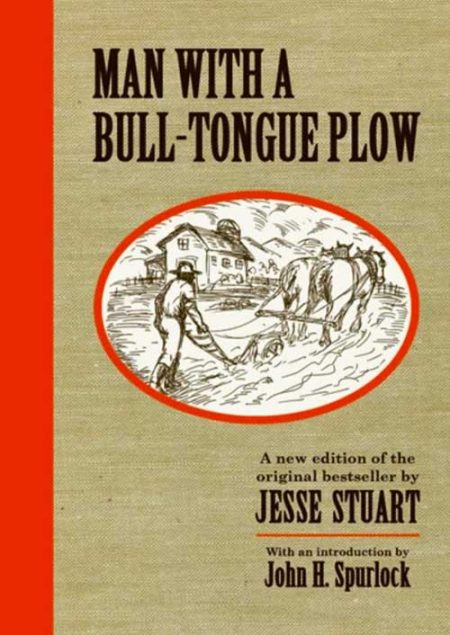 Originally published in 1934, this book was so successful that the first printing of the first edition sold out in less than a month! Man With a Bull-Tongue Plow is a collection of sonnets that Stuart weaves into a personal narrative describing the rural Kentucky life and events he knew so well. Packed with emotion, and sometimes harsh observations, the poetry in this book comes from the heart of a young man who was always full of enthusiasm. At this stage of his life, Jesse Stuart was bursting with pure expression and had not yet learned to polish his poetry in an effort to make it more palatable to a broader audience and Interestingly, that's exactly what made this volume so popular. It was nominated for a Pulitzer Prize and selected as both One of the 100 Best Books in America and One of the1000 Great Books of the World. An introduction by John H. Spurlock adds context and insight to Stuart's writing. HARDCOVER By Jesse Stuart
Originally published in 1934, this book was so successful that the first printing of the first edition sold out in less than a month! Man With a Bull-Tongue Plow is a collection of sonnets that Stuart weaves into a personal narrative describing the rural Kentucky life and events he knew so well. Packed with emotion, and sometimes harsh observations, the poetry in this book comes from the heart of a young man who was always full of enthusiasm. At this stage of his life, Jesse Stuart was bursting with pure expression and had not yet learned to polish his poetry in an effort to make it more palatable to a broader audience and Interestingly, that's exactly what made this volume so popular. It was nominated for a Pulitzer Prize and selected as both One of the 100 Best Books in America and One of the1000 Great Books of the World. An introduction by John H. Spurlock adds context and insight to Stuart's writing. HARDCOVER By Jesse Stuart


